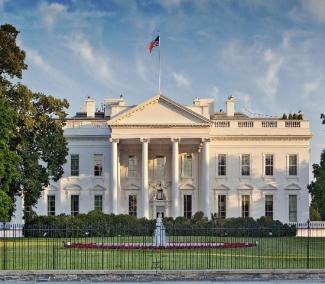
Breaking Down the One Big Beautiful Bill Act
It’s been a few months since The One Big Beautiful Bill (OBBB) was signed into law on July 4, 2025. It extends many of the provisions of the 2017 Tax Cuts and Jobs Act (TCJA) and makes changes that will have an effect on individual taxpayers, families and small business owners. We wanted to summarize a few of the provisions that might be most impactful to our clients, however there are many more provisions of the OBBB not listed below. We are happy to discuss any questions you may have regarding your specific situation.
Reduced Income Tax Rates
The lower income tax rates established in the TCJA are made permanent with the OBBB. The seven individual tax rates are 10%, 12%, 22%, 24%, 32%, 35% and 37%.
Increased Standard Deduction
For the 2025 tax filing year, the standard deduction is increased to $15,000 for single filers, $23,625 for head of household filers, and $30,000 for joint filers. These amounts will be adjusted for inflation in future years.
Itemized Deductions
The OBBB makes several changes to itemized deductions which will generally increase the number of filers who may be able to itemize in 2026.
State and Local Tax Limitation
For the 2025 tax year, the state and local tax (SALT) limitation for itemized deductions is increased to $40,000 from the $10,000 level set by the TCJA, with a phaseout for taxpayers whose MAGI is greater than $500,000.
Deductions and Credits
Senior Exemption
For tax years 2025-2028, the OBBB provides a deduction of $6,000 for taxpayers who have turned 65 prior to the end of the tax year. This deduction is reduced for MAGIs over $75,000 for single filers and $150,000 for joint filers.
No Tax on Tips/Overtime
For tax years 2025-2028, the OBBB provides a deduction of up to $25,000 for qualified tips for individuals in a customary and regularly tipped industry. The no tax on overtime is a deduction up to $12,500 for individuals. Both deductions are phased out for individuals with MAGI over $150,000 and $300,000 for joint filers.
Car Loan Interest
For tax years 2025 through 2028, you may claim an above-the-line deduction of up to $10,000/year for interest paid on a qualified personal-use passenger vehicle loan where final assembly occurred in the U.S. This deduction begins phasing out for MAGI over $100,000 for single filers and $200,000 for joint filers.
Charitable Deduction
Non-itemizers can deduct up to $1,000 ($2,000 for joint returns) for charitable contributions made during the tax year. The pre-OBBB amount allowed was $300 ($600 for joint returns).
Enhanced Tax Credits
Child Tax Credit
Starting in tax year 2025, the OBBB increases the child tax credit to $2,200 per qualifying child and will be adjusted for inflation. This provision also includes higher MAGI phaseout amounts ($200,000 for single filers and $400,000 for married couples filing jointly).
Dependent Care Assistance
The OBBB increases the pre-tax contribution amount to employer dependent care assistance programs to $7,500.
529 Accounts
Kindergarten to High School Expenses
For tax years beginning after Dec. 31, 2025, the annual limitations for 529 distributions for elementary and secondary school expenses (Kindergarten through 12th grade) is now $20,000 per child (an increase from $10,000). Qualified expenses also now include curriculum and instructional materials, online educational materials, tutoring, standardized testing fees, fees for dual enrollment in an institution of higher education and educational therapies for students with disabilities.
Source: https://www.irs.gov/newsroom/one-big-beautiful-bill-provisions

